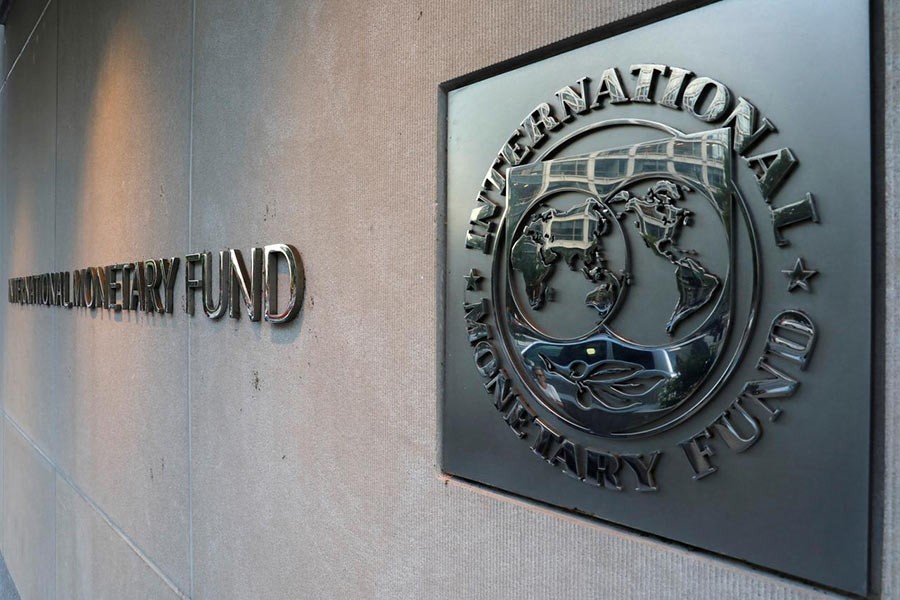The International Monetary Fund (IMF) on Tuesday suggested Bangladesh Bureau of Statistics (BBS) release quarterly data on gross domestic product (GDP) instead of existing annual reporting practice, officials said.
They said the visiting mission of the IMF also recommended changing the base year of calculating the consumer price index (CPI) and inflation, they said.
It inquired about delays in releasing the CPI data for the months of July and September last.
The team, led by Rahul Anand, IMF Mission Chief to Bangladesh, sat with the BBS at its office in Dhaka. BBS Director General Md Matiur Rahman and his team attended the meeting.
Following the government's request for budgetary support, the IMF team is now visiting Bangladesh to scrutinise the country's macroeconomic, financial and monetary situation.
The mission began on October 26 last and will end on November 9.
It is holding discussions with the local authorities concerned on economic and financial reforms and policies, aimed at making progress towards a staff-level agreement on a prospective Extended Credit Facility/Extended Fund Facility programmes, and access to the newly created Resilience and Sustainability Facility (RSF) in the coming months.
Sources said the IMF mission also inquired about the climate financing issues and data relevant to climate consideration in the development works and in the public expenditures.
BBS Director General Md Matiur Rahman told the FE that the IMF team basically came to meet us on a courtesy call.
BBS informed the team about its steps taken to revise the base year of calculating the CPI, he said, adding that the BBS was working on revising it from existing 2005-06 to 2015-16.
Regarding the GDP data, Mr Matiur Rahman said: "We've also informed the team that the BBS is working on releasing quarterly GDP data and will launch it on a pilot basis within the shortest possible time."
However, as it needs to build capacities of our manpower and the stakeholders concerned, the process would require some more time to complete, he added.
Although the BBS is providing GDP data on an annual basis until now, many neighbouring countries including India and China release such data on a quarterly basis.
Another BBS official said: "The IMF also asked about the delays of publishing the inflation data for the last two months. We've informed the IMF team that the BBS always creates the latest data of CPI but releases it following necessary approval by the higher authorities. Sometimes, the approval process causes delays."
Meanwhile, the IMF is set to suggest lessening dependence on apparel sector and diversifying product basket to boost the external trade amid Bangladesh's export earnings plummeting, officials say.
In September, earnings from shipments of readymade garments -- the country's main export product -- fell significantly.
The downturn, industry people fear, may continue several months more, lowering foreign-currency earnings and thus adding to pressure on the country's foreign-exchange reserves.
At a meeting set for today (Wednesday), the IMF team will sit with commerce ministry officials in Dhaka where mid-term export projection on apparel/non-apparel products will also come up for discussion.
The country's preparedness for post-LDC graduation and market access of export items to the European Union and the United States then is also on the agenda of discussion -- part of a series of spot reviews pending a budget-support loan from the Fund.
Bangladesh's efforts to sign free-trade agreements (FTAs) keeping in mind the possible tariff-preference loss in the post-LDC era and the bilateral trade deals signed as of now will also be reappraised as the officials of the global lending agency sit with the trade officials.
Officials said Bangladesh has yet to sign any bilateral FTA but maintaining talks with several countries to strike such deals. Bangladesh and India are set to begin negotiations on the signing of an advanced FTA styled 'Comprehensive Economic Partnership Agreement (CEPA)'.
They said "moves are there to sign FTAs with a number of countries", including China, Indonesia, Brazil, Malaysia, Thailand, South Korea, Japan, and Australia.
According to commerce ministry officials, the two sides will also discuss WTO's binding rules related to tariff/tariff rationalisation.
Presently, Bangladesh's import tariff is as high as 14 per cent which the bilateral and multilateral trade partners suggest to be cut down gradually.
A senior commerce ministry official told the FE Tuesday the government is also planning to lower the tariff rates in phases. "The Bangladesh Tariff Commission is preparing country's first tariff policy where a target will be set on tariff rationalisation."
The IMF team is also scheduled to meet with the energy ministry's officials on the day where subsidy on energy and power sector, large capacity payments to independent power producers will come into discussion, among others.


